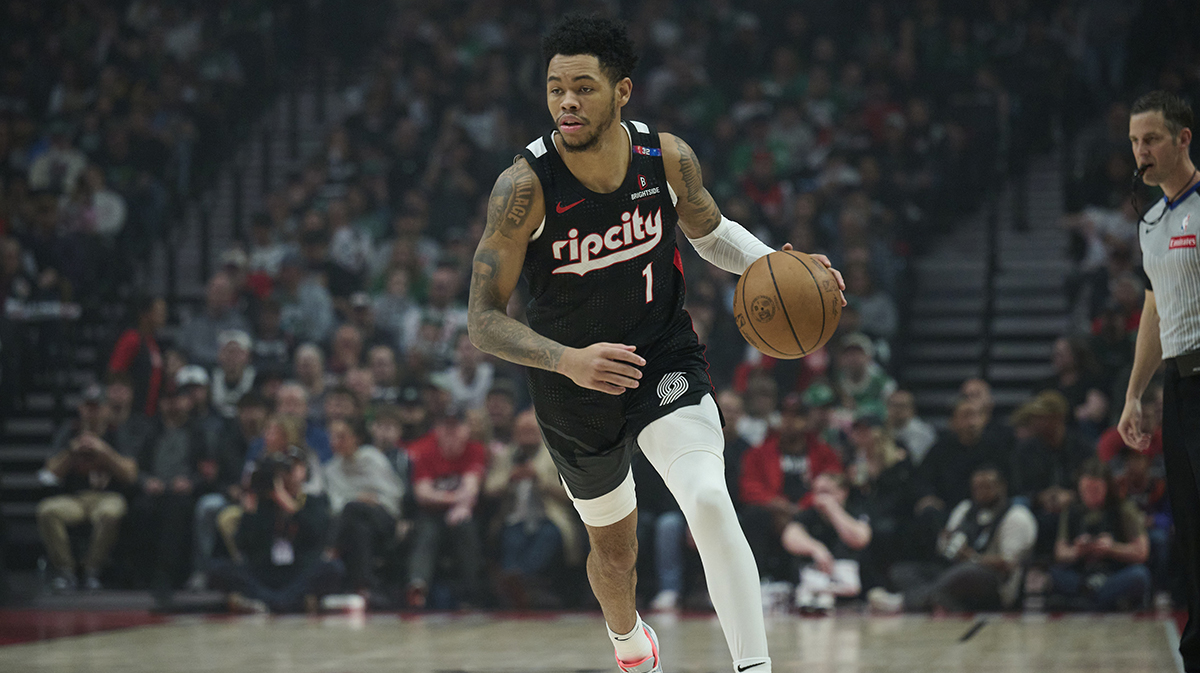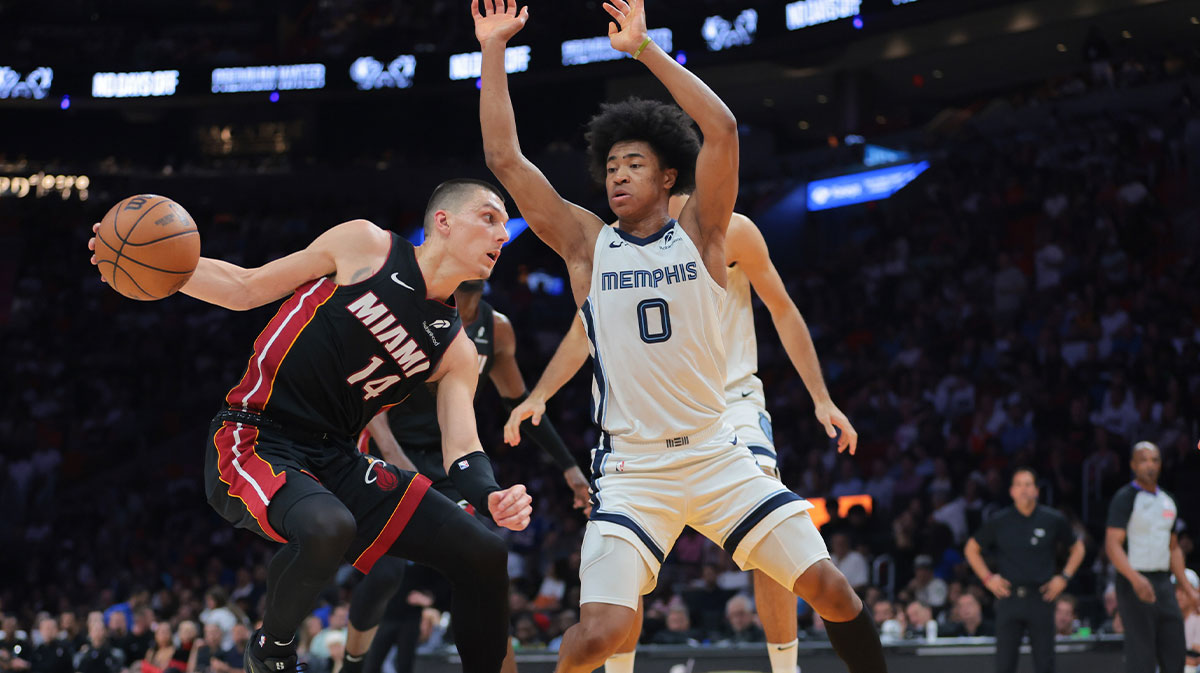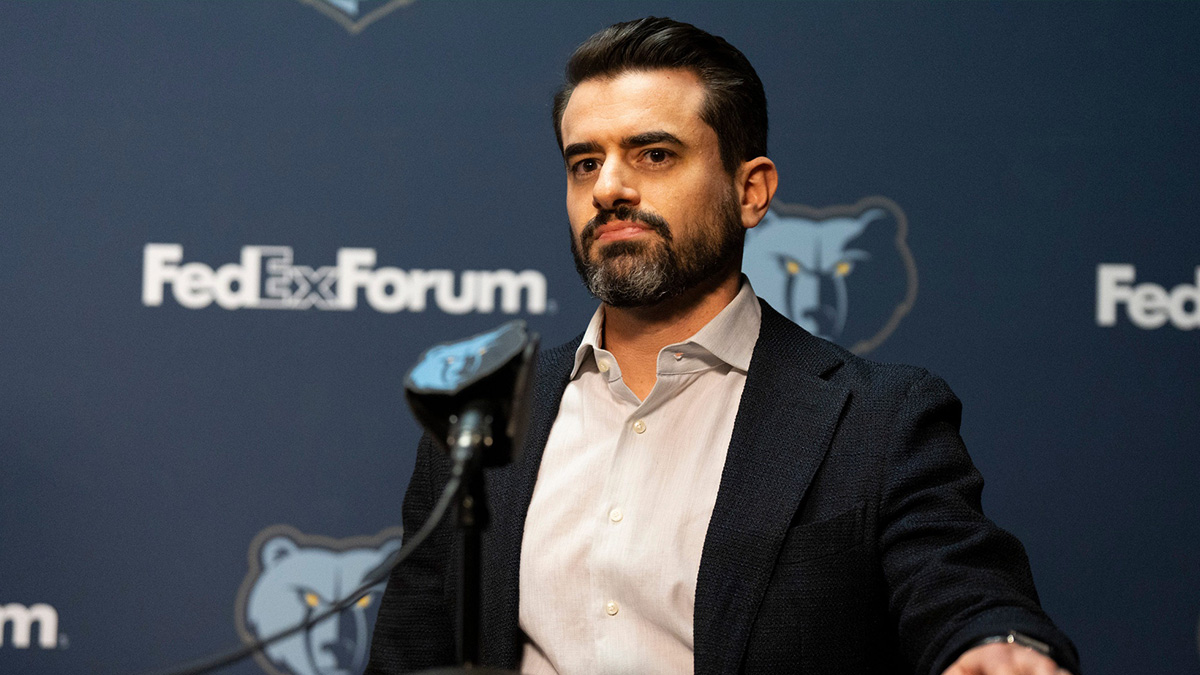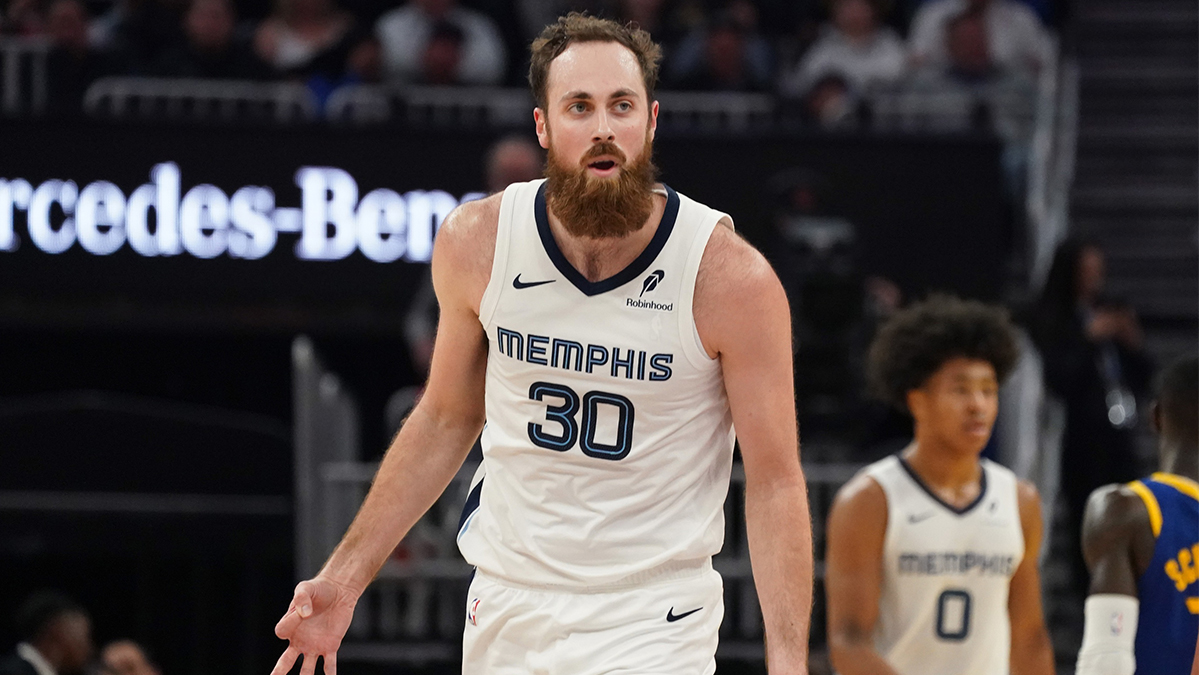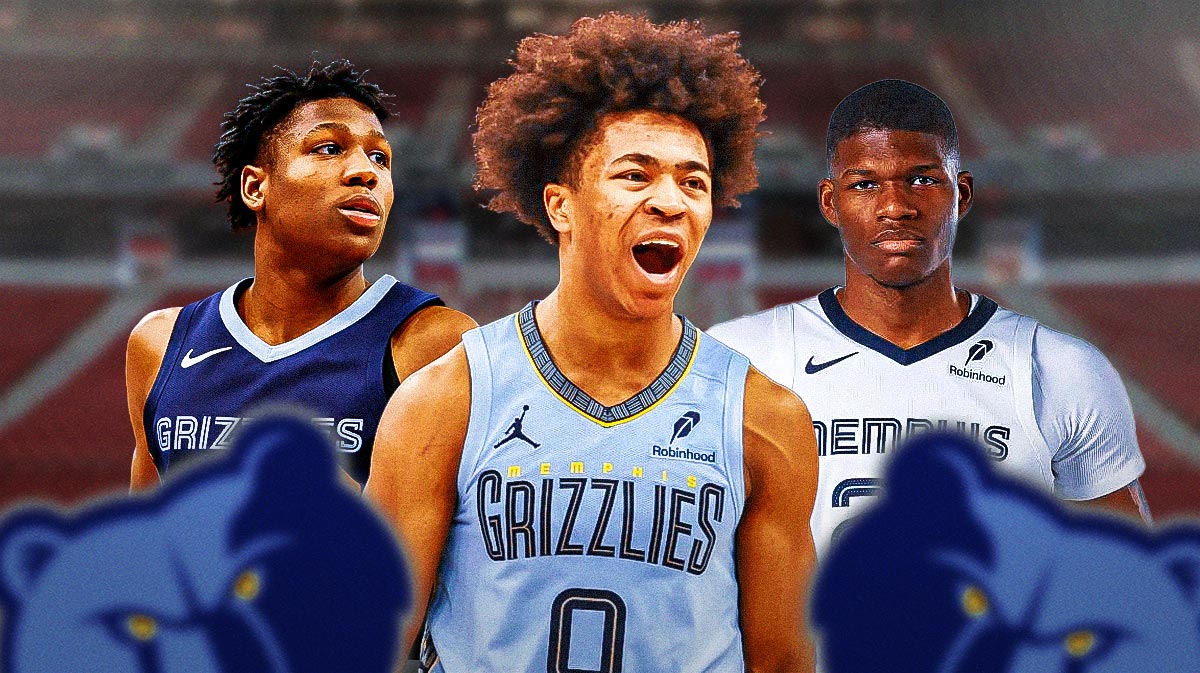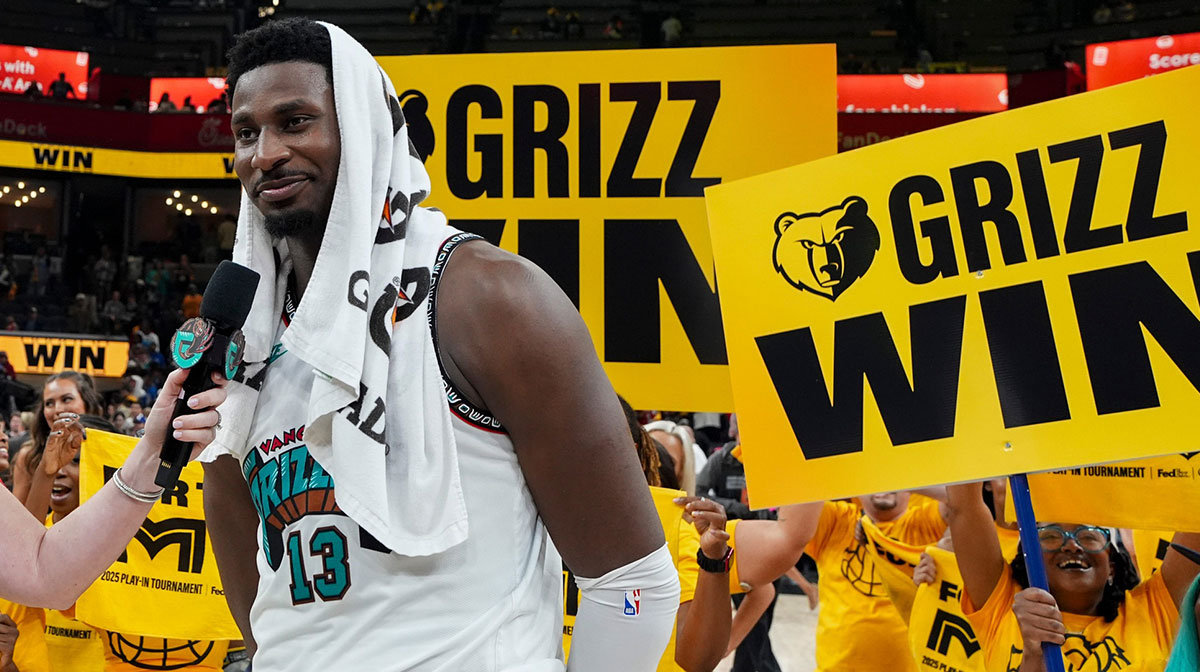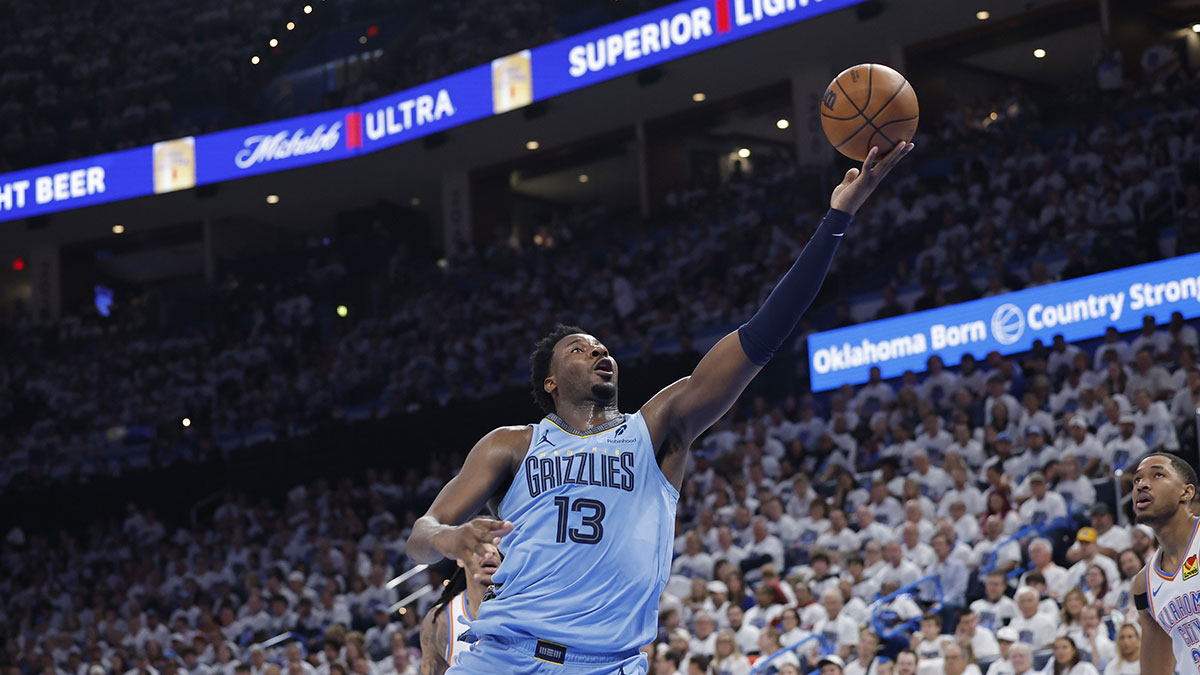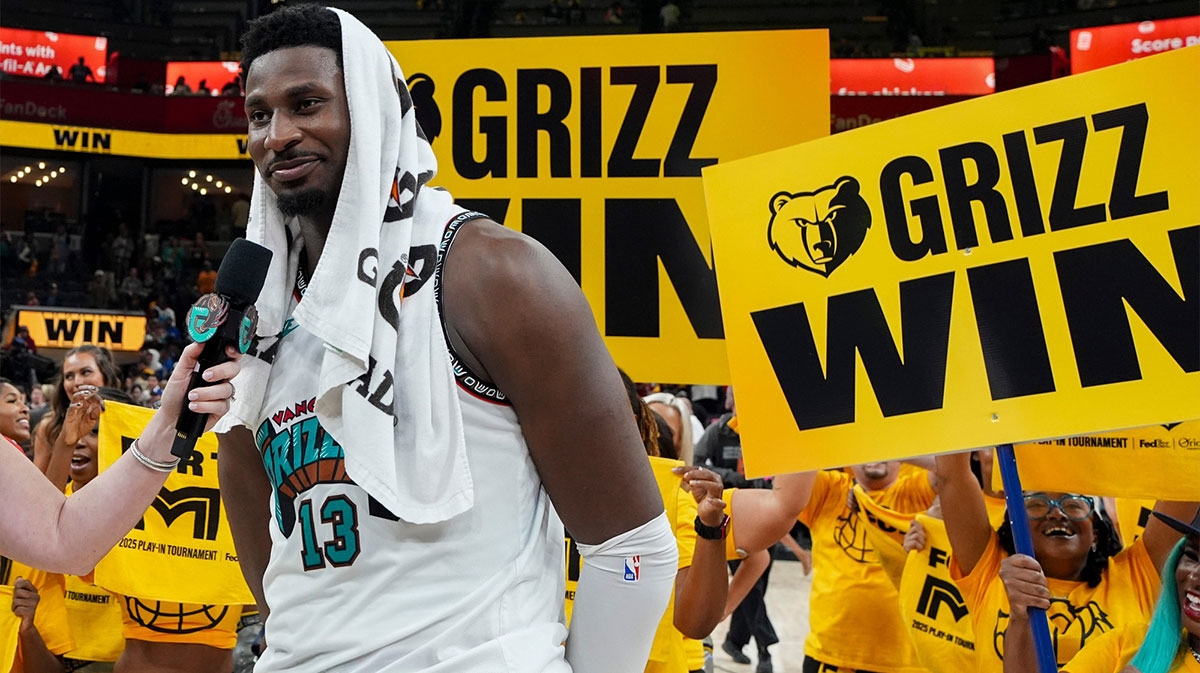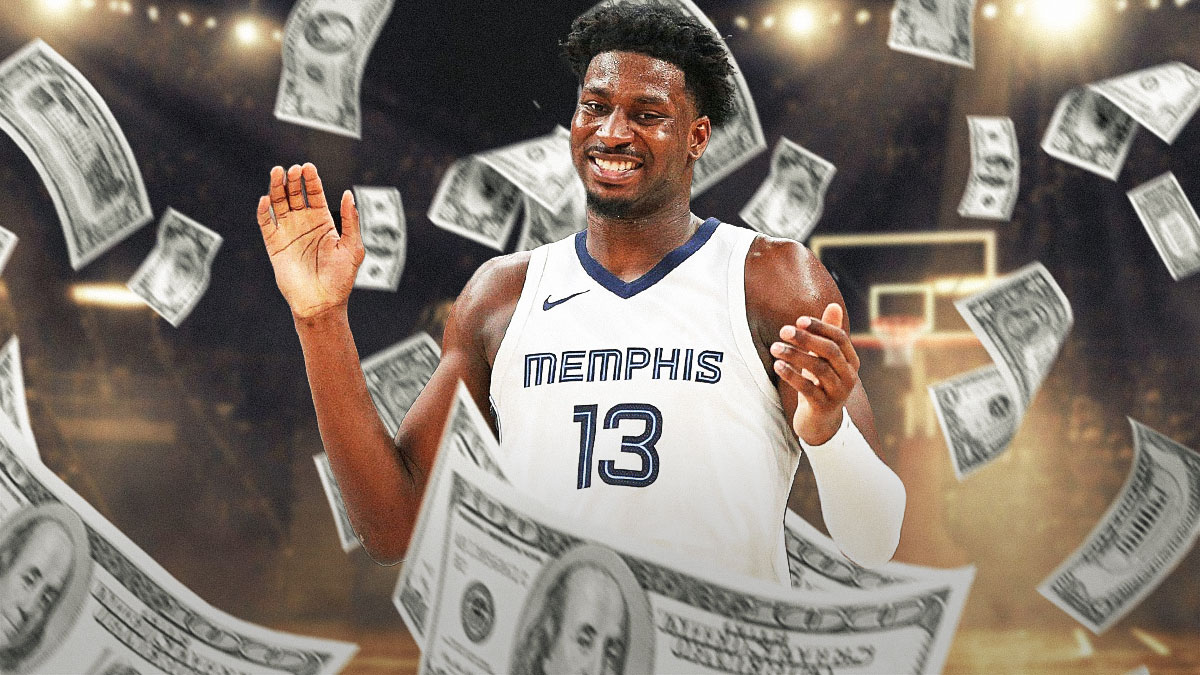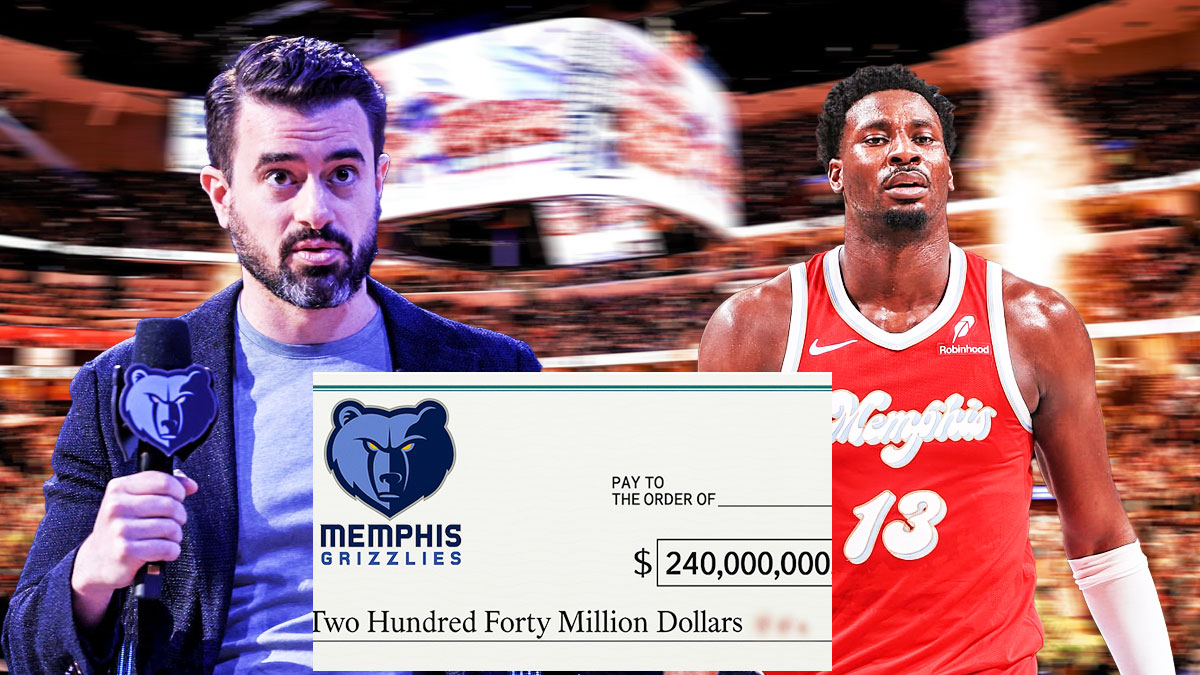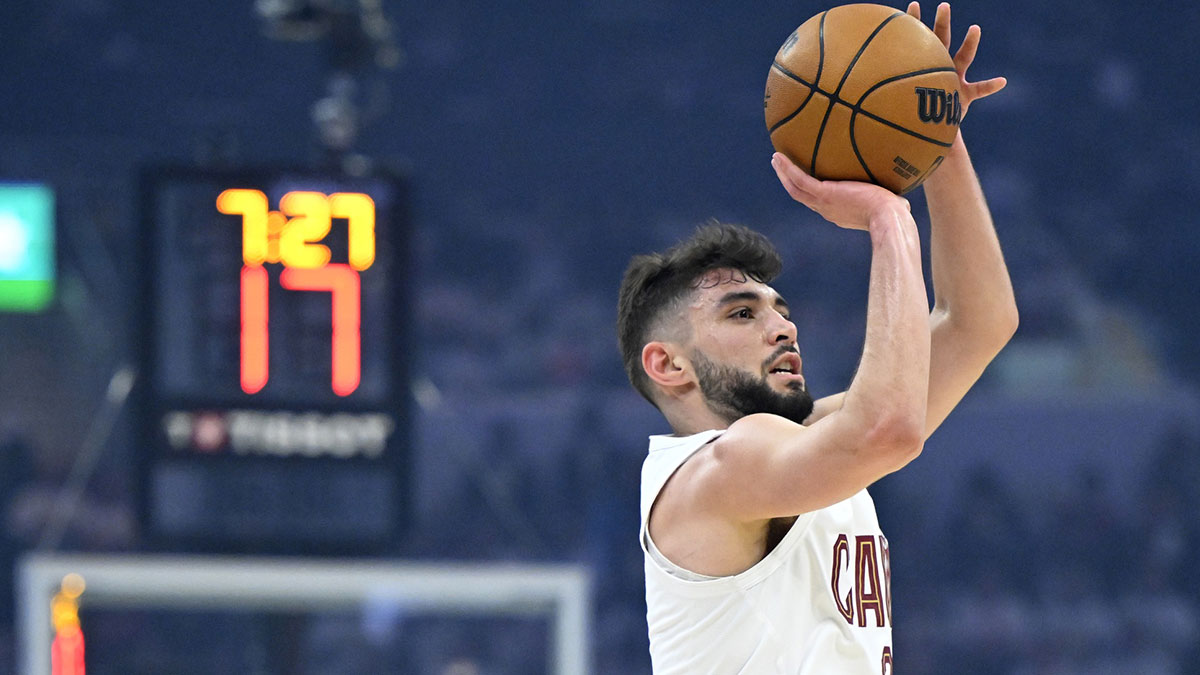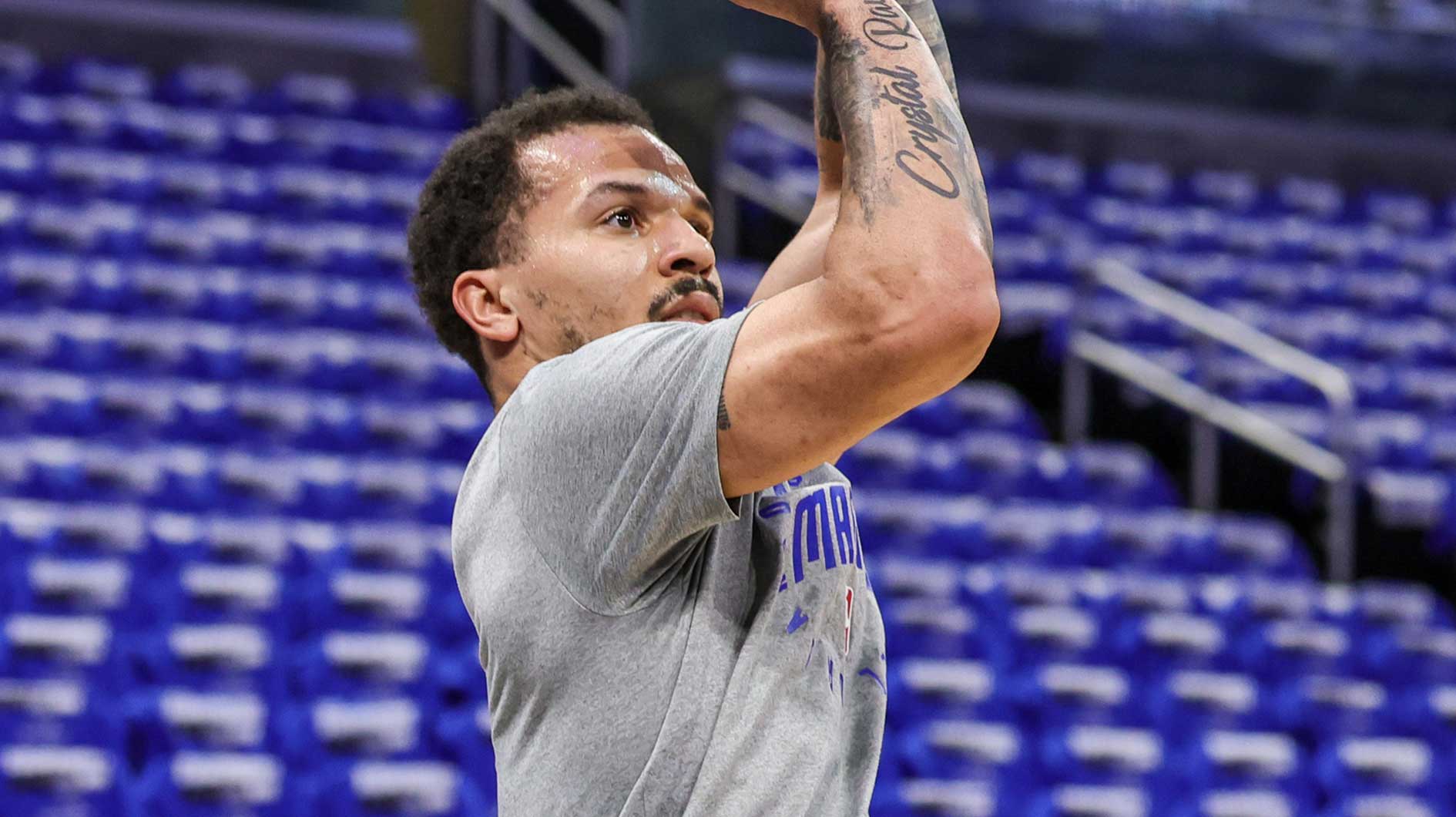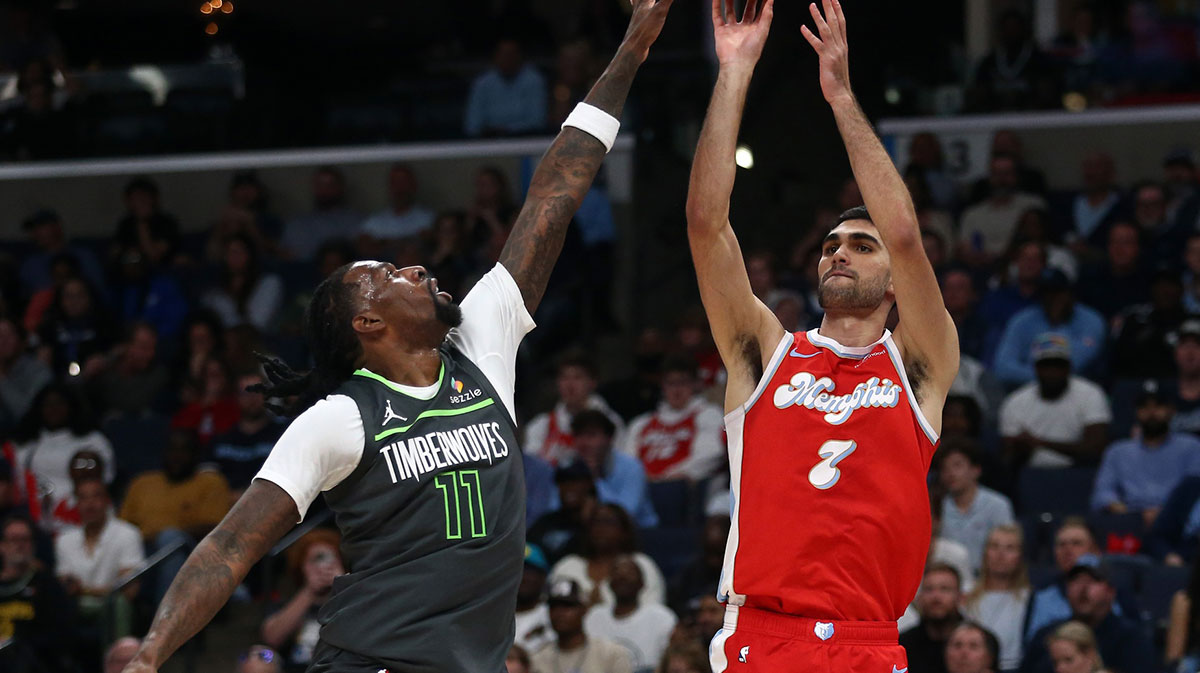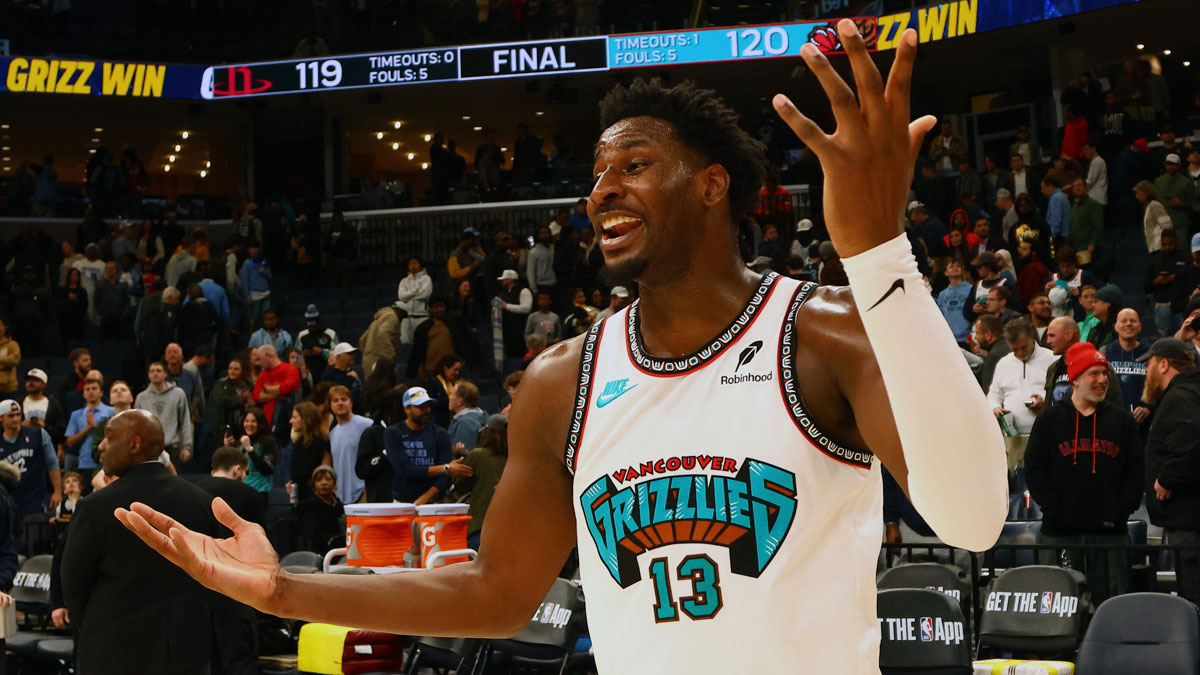The NBA's Western Conference playoff race is going to be nuts.
If the ninth-seeded team is within four games of the eighth-seeded team at the conclusion of the eight-game regular season, the two teams face-off for the eighth seed. It would be double elimination for the eighth seed and single elimination for the ninth seed.
The Memphis Grizzlies own the eighth seed in the West. The Portland Trail Blazers, New Orleans Pelicans, Sacramento Kings, San Antonio Spurs, and Phoenix Suns are the teams chasing the Grizzlies in that order. There's no margin for error for any of these teams in their quest to crack the playoffs.
Here's the player who can move the needle for every team battling to compete in the NBA's Western Conference playoffs.
Memphis Grizzlies: Josh Jackson
The Grizzlies seem poised to play in a double-elimination face-off, as three teams are within four games of them; that means their young core has some stiff competition.
Josh Jackson has appeared in just 18 games for the Grizzlies this season. That said, he has been a spark plug off the bench, averaging 10.4 points per game. On an NBA team with a bounty of talented first and second-year players, Jackson, a third-year player, is ironically one of the older players in head coach Taylor Jenkins' rotation.
Memphis is tasked with holding off teams who have experience sneaking into and winning games in the NBA Playoffs. They need players to step up and take big shots. If Jackson continues to come off the bench and make an impact in the scoring department it'll go a long way for Memphis. They need someone who can pick up the slack when Jenkins goes to the bench.
Portland Trail Blazers: Mario Hezonja
When you have Damian Lillard, CJ McCollum, and Carmelo Anthony on your depth chart, scoring isn't supposed to be an issue. At the same time, Rodney Hood is still recovering from a torn Achilles tendon and Trevor Ariza is sitting out the NBA restart: Portland needs bench scoring.
Hezonja has been granted limited playing time this season, but that could change with the aforementioned absences. While it comes in spurts, Hezonja can score the basketball. He's a willing isolation player, gets to the rim well off the dribble, and can go for 20 points on any given night.
Eight games. That's all the Trail Blazers have. They need players to step up and provide a scoring boost. Hezonja has the skill set to be such a jolt.
New Orleans Pelicans: Jaxson Hayes
The Pelicans have gradually improved on both ends of the floor this season, and while they're eight games below .500 there's not a glaring weakness on their roster. For the sake of this NBA season, they need more from Hayes.
Hayes has shown glimpses of being a capable rim protector and inside finisher, but it has come with inconsistency and inefficiency off the bench. The Pelicans are going to be playing minimal, if any teams that they're unequivocally better than, meaning they need everyone to bring their A-game.
The pause in play will end up being roughly the same amount of time as an NBA offseason: four months. Hayes playing with more consistency by means of staying on his feet defensively and finishing more inside adds another starting-caliber player to a bench that has been shaky outside of Josh Hart.
Sacramento Kings: Buddy Hield
From the tension surrounding his new contract, to the Kings underachieving, to being swapped out of the team's starting five, Hield has been living out a rollercoaster season. If he plays like the player the Kings expect him to be in the NBA restart, they have a great chance of challenging the Grizzlies for the playoffs.
Last year Hield was a budding star. That player still exists but has been virtually paused. The Kings need to click the play button on Hield because a full-fledged version of the Oklahoma product is a franchise player. He's a bonafide number one scorer, an efficient shooter, and a reliable defender.
If the Kings get the best version of Hield, they're getting the best version of themselves. Hield playing at a high level takes the pressure off De'Aaron Fox and Bogdan Bogdanovic to score and frees up outside shooters (Nemanja Bjelica) and inside threats (Marvin Bagley).
San Antonio Spurs: Derrick White
LaMarcus Aldridge being out for the season with a shoulder injury hurts, but it doesn't mark the end of the season for the Spurs. They can lean on playoff experience and slowing the game down. With that said, players are going to have to fill the scoring void the big man's injury creates.
White is one of four Spurs guards averaging between 10-12 points per game (White, Patty Mills, Dejounte Murray, and Bryn Forbes). He's scoring at a plausible rate while moving the ball and beginning fastbreaks. White has been one of the best reserve guards in the NBA this season.
White averaged an impressive 15.1 points per game in last season's playoffs. Then he was a starter. Now he's a reserve. He has shown an ability to answer the bell in pivotal games, and if he does the same later this month it gives the Spurs another go-to scorer and a fighter's chance to keep their historic playoff streak alive.
Phoenix Suns: Mikal Bridges
The Suns drafted Bridges to be a reliable, three-and-d starter. To this point, he has been a mediocre-shooting reserve. This is Bridges' chance to prove himself and help the Suns shock the world.
Devin Booker and Kelly Oubre Jr. are the mainstays of head coach Monty Williams' offense. Ricky Rubio gets the ducks in a row, and Deandre Ayton clogs up the paint. They badly need someone to stretch the floor. That player can be Bridges. He has a long, arcing jump shot, which allows him to get shots up over athletic forwards. He's also a considerable on-ball defender.
Bridges has been in and out of the Suns starting lineup over his two seasons in the NBA. If he shoots at a higher clip from distance, it opens up the floor for everyone else to play to their strengths. It subsequently gives a reliable defender more minutes on a team that's 19th in the NBA in defensive net rating (111.3), 21st in opponent points per game (113.9), and 23rd in opponent three-point shooting percentage (36.8 percent).



